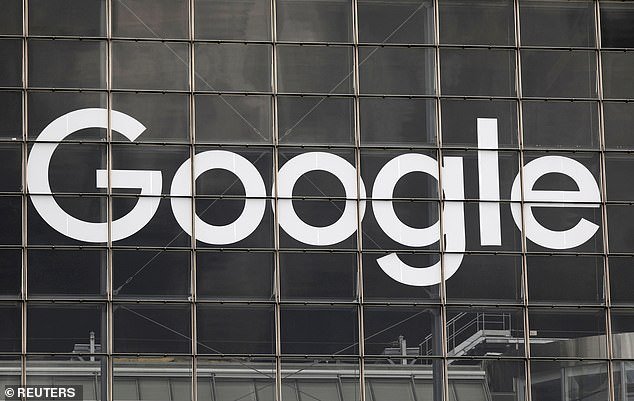BREAKING: Google says it will stop selling ads based on people’s browsing histories and tracking users across the internet – though the new policy doesn’t include mobile apps
- Google announced the dramatic advertising changes on Wednesday
- It said it will stop using and investing in technologies that track users on its Chrome browsers as they move from site to site by next year
- Google has been working on proposals to remove so-called third party cookies from its Chrome browser since early last year
- Third-party cookies, which have enabled online ads for decades, have been a longstanding source of privacy concerns
- Google will still be able to track users itself through data collected from its services like Search, Maps and YouTube
- The company said its latest announcement applies only to websites, not ad tools or unique identifiers for mobile apps
Google on Wednesday announced plans to stop selling ads based on users’ browsing history in an upcoming overhaul aimed at tightening up privacy.
The tech giant’s parent company, Alphabet Inc, said that it is aiming to stop using and investing in technologies that track users on its Chrome browser as they move from site to site by next year.
Google has been working on proposals to remove from Chrome so-called third party cookies – snippets of code used by a website’s advertisers to record browsing history in order to show users personalized ads – in an effort to meet growing data privacy standards.
Third-party cookies have been a longstanding source of privacy concerns, so Google proposes instead grouping together web users with similar interests and keeping web histories private on user devices.
Google will still be able to track users itself through data collected from its services like Search, Maps and YouTube.
The company said its latest announcement applies only to websites, not ad tools or unique identifiers for mobile apps.
Google on Wednesday announced plans to stop selling ads based on users’ browsing history in an upcoming overhaul aimed at tightening up privacy (file photo)
In a blog post, David Temkin, Google’s director of product management for ads privacy and trust, said the company continues to get questions on whether it will join others in the ad tech industry that plan to replace third-party cookies with alternative user-level identifiers.
‘Today, we’re making explicit that once third-party cookies are phased out, we will not build alternate identifiers to track individuals as they browse across the web, nor will we use them in our products,’ Temkin wrote.
Google’s proposals have drawn criticism from players in the online ad industry as well as scrutiny from regulators over concerns that it will add to the tech giant’s already dominant power in online advertising.
Chrome is the world’s dominant web browser, and many rival browsers like Microsoft’s Edge are based on Google’s Chromium technology.
Google accounted for 52 percent of global digital ad spending in 2020 with nearly $152billion, according to digital-ad consulting group Jounce Media.
Critics contend Google is banning rivals from building gigantic profiles on users, while developing for itself features in Chrome to continue to add to such dossiers.
Temkin disputed that notion in his blog post, vowing that Google will not to develop workarounds for itself and saying that it is committed to continue allowing targeting ads based on data that companies receive directly from consumers.
‘If digital advertising doesn’t evolve to address the growing concerns people have about their privacy and how their personal identity is being used, we risk the future of the free and open web,’ Temkin wrote.
Google had announced early last year that it would remove third-party cookies in 2022.
On Wednesday the company confirmed that it will not build or use any alternatives to replace the technology for its own ad-buying tools.
Instead, Google is testing a way for businesses to target ads to clusters of consumers with similar interests, which it says would protect privacy because it hides individual users in a crowd.
The technology, part of a project called the Privacy Sandbox, would use an algorithm to group people according to their common web browsing. Each group would have a minimum membership, so individuals can’t be identified.
Brands could target their ads to a cluster interested in buying a car, for example, rather than relying on cookies that have tracked specific users across car-buying websites.
Big trade groups representing advertisers have called on Google to delay phasing out cookies until an alternative proves suitable. Google said in January that its tests show the clustering system could be effective.
This is a developing story.
